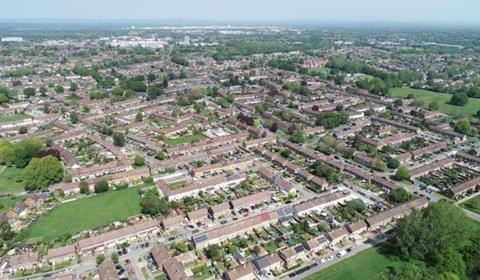West Sussex town facing surge in demand for temporary accommodation
Crawley Council is set to vote on a proposal to declare a housing emergency later today.

This comes as the West Sussex town grapples with an unprecedented surge in demand for temporary accommodation.
It said it is facing unsustainable temporary accommodation costs, which have risen from £456,000 in 2018 to 2019 to £5.7 million in 2023 to 2024, a 12-fold increase.
Temporary accommodation costs now account for one pound in every three of the council’s budget.
Crawley Council said that it is “one of the worst affected areas in the country”.
In the past eight months, the council has received 2,796 applications for 243 available housing units, resulting in an average of more than 11 applicants per property. Additionally, 485 households, or a total of 1,224 individuals, are living in temporary accommodation.
The council has said there is also an undersupply of more permanent accommodation.
Its statement on the motion emphasised that “this is not a temporary situation” and that “current trends are set to continue or worsen”.
The local authority added that individuals with a real housing need are being placed in accommodations that may not fully meet their requirements, potentially located outside the borough and for extended periods.
In an bid to address housing pressures in Crawley, the council has delivered over 1,600 affordable homes over the past 10 years, continuing to bring new sites forward and buying additional properties.
The council said that by declaring a housing emergency, it will seek to draw attention to the situation, explain to residents why the situation has arisen and seek greater support and action from the government “who hold many of the key levers needed to address the crisis”.
>>See also: Money, trust and freedom: What councils need in order to build more homes
Michael Jones, leader of the council, said: “We urgently need help to deal with these pressures and call on the government to increase the housing benefit subsidy rate, which is currently frozen at 2011 levels. The cost of temporary accommodation has increased hugely since then.”
Housing charity Shelter in December published figures showing the number of people in temporary accommodation increased 14% to nearly 280,000 in June.
In November last year, two Scottish councils, Edinburgh and Glasgow City Council declared a housing emergency due to mounting pressures on their homelessness services.
Earlier this month, Birmingham City Council confirmed it was considering closing its social housing waiting list to new applicants amid a backlog of thousands of applications.











No comments yet